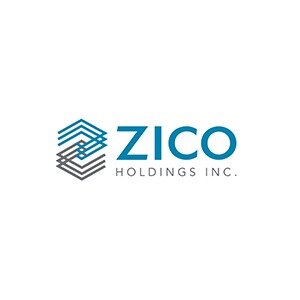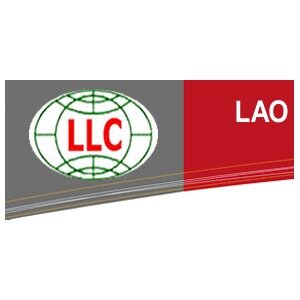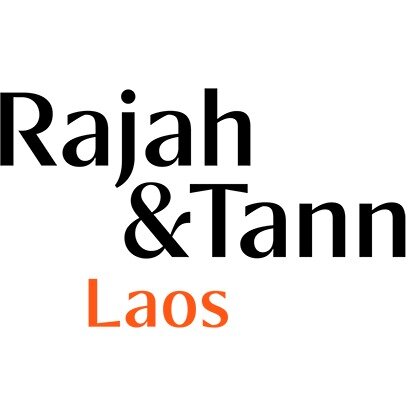Best Mining Law Lawyers in Vientiane
Share your needs with us, get contacted by law firms.
Free. Takes 2 min.
List of the best lawyers in Vientiane, Laos
About Mining Law in Vientiane, Laos
Mining Law in Vientiane, Laos is governed by national legislation and local regulations designed to manage the exploration, extraction, and processing of mineral resources. The law aims to balance the economic benefits of mining with environmental protection and social responsibility. The key legal framework is set by the 2017 Law on Minerals, which outlines requirements for licensing, operations, environmental standards, and community engagement. Both local and foreign investors are subject to these laws, ensuring that mining activities contribute positively to the economy while mitigating negative impacts.
Why You May Need a Lawyer
Navigating the complexities of Mining Law in Vientiane often requires professional legal advice. Common situations where you might need a lawyer include:
- Securing exploration or mining licenses and permits
- Drafting or reviewing contracts with partners, suppliers, or local communities
- Understanding and ensuring compliance with local and national environmental regulations
- Negotiating land use agreements and compensation with landowners or affected communities
- Responding to or preparing for government inspections and audits
- Handling disputes or claims arising from mining operations
- Structuring foreign investment and joint ventures in compliance with Lao law
- Advising on taxation, royalties, and government obligations
Legal counsel can protect your interests, reduce risks, and assist you in navigating both the regulatory landscape and potential conflicts.
Local Laws Overview
Mining activities in Vientiane are primarily regulated by the Law on Minerals (2017) along with several implementing decrees and guidelines. Here are key aspects relevant to mining law:
- Licensing: Mining projects require several permits and licenses at different stages, including prospecting, exploration, and exploitation. Approval involves a multi-step process with the Ministry of Energy and Mines and other governmental bodies.
- Environmental Standards: Environmental Impact Assessments (EIA) and Environmental Management and Monitoring Plans (EMMP) are mandatory before operations commence. Strict regulations protect water, land, and affected communities.
- Land Use and Community Rights: Land agreements must be negotiated with local authorities and affected landowners. Compensation is often required when land is used or disrupted.
- Foreign Investment: Foreign investors must comply with additional approvals and are often required to form joint ventures with Lao nationals depending on project type and size.
- Taxation and Royalties: Mining companies must pay royalties based on mineral type and production volume, along with taxes applicable under Lao law.
- Reporting and Compliance: Operators must submit regular reports and are subject to inspection. Non-compliance can lead to fines, revocation of license, or criminal liability.
Frequently Asked Questions
What types of minerals are regulated under Lao Mining Law?
The Law on Minerals covers all metallic and non-metallic minerals, including gold, copper, potash, gypsum, and precious stones, among others.
What government authority issues mining licenses in Vientiane?
The Ministry of Energy and Mines is the primary authority granting mining permits, with input from provincial and local government bodies.
Are foreign companies allowed to engage in mining activities?
Yes, foreign companies can invest in mining in Laos, but may need to partner with local companies or obtain special approval from relevant authorities.
What are the environmental requirements for mining operations?
Operators must submit Environmental Impact Assessments (EIA) and obtain approval for management plans that detail efforts to prevent or mitigate environmental harm.
How long does it take to receive a mining license?
The timeline varies depending on the type of license and project scale, but it can take several months to over a year due to the need for detailed studies and multiple approvals.
What are the key taxes and royalties on mining operations?
Mining companies must pay royalties based on the mineral extracted, as well as corporate income tax and other applicable levies specified in law and concession agreements.
Can mining licenses be transferred or assigned?
Licenses may be transferred only with government approval and typically require a formal application and review process.
What happens if there is a dispute with local communities?
Laos emphasizes negotiation and mediation for disputes. Legal intervention is available if agreements cannot be reached, and the courts may become involved.
Is it possible to mine in protected areas?
Mining is generally prohibited in national parks and protected areas, and strict penalties apply for unauthorized activities. Special exemptions are rare and highly regulated.
How can a lawyer assist with mining projects?
Lawyers help ensure compliance with all laws and regulations, negotiate agreements, obtain licenses, manage risks, and resolve disputes efficiently.
Additional Resources
If you need further information or assistance, consider these resources:
- Ministry of Energy and Mines (MEM): The central authority for all mining licenses and regulations.
- Department of Mine Management: A division of MEM providing information on compliance and reporting requirements.
- National Assembly of Lao PDR: Source for the full texts of mining laws and relevant decrees.
- Legal Aid Offices in Vientiane: These provide general information and can direct you to qualified lawyers.
- Chamber of Commerce and Industry: Can offer contacts for professional legal and consulting firms experienced in mining law.
Next Steps
If you are considering or currently involved in a mining activity in Vientiane, Laos, it’s important to follow a structured approach:
- Clearly define your mining project plans, objectives, and locations.
- Consult with the Ministry of Energy and Mines to understand licensing and regulatory requirements specific to your project type and location.
- Gather all relevant documentation, including proposed business structures, financing details, and land use plans.
- Engage a qualified lawyer with experience in Lao mining law to guide you through the application process, draft contracts, and advise on compliance and community relations.
- Prepare for environmental assessments and community consultations, both of which are essential for legal compliance and project success.
- Regularly review your legal and regulatory obligations to avoid fines, delays, or disputes.
Taking these steps and seeking legal advice from professionals familiar with the local context will help ensure your mining project is compliant and successful.
Lawzana helps you find the best lawyers and law firms in Vientiane through a curated and pre-screened list of qualified legal professionals. Our platform offers rankings and detailed profiles of attorneys and law firms, allowing you to compare based on practice areas, including Mining Law, experience, and client feedback.
Each profile includes a description of the firm's areas of practice, client reviews, team members and partners, year of establishment, spoken languages, office locations, contact information, social media presence, and any published articles or resources. Most firms on our platform speak English and are experienced in both local and international legal matters.
Get a quote from top-rated law firms in Vientiane, Laos — quickly, securely, and without unnecessary hassle.
Disclaimer:
The information provided on this page is for general informational purposes only and does not constitute legal advice. While we strive to ensure the accuracy and relevance of the content, legal information may change over time, and interpretations of the law can vary. You should always consult with a qualified legal professional for advice specific to your situation.
We disclaim all liability for actions taken or not taken based on the content of this page. If you believe any information is incorrect or outdated, please contact us, and we will review and update it where appropriate.












